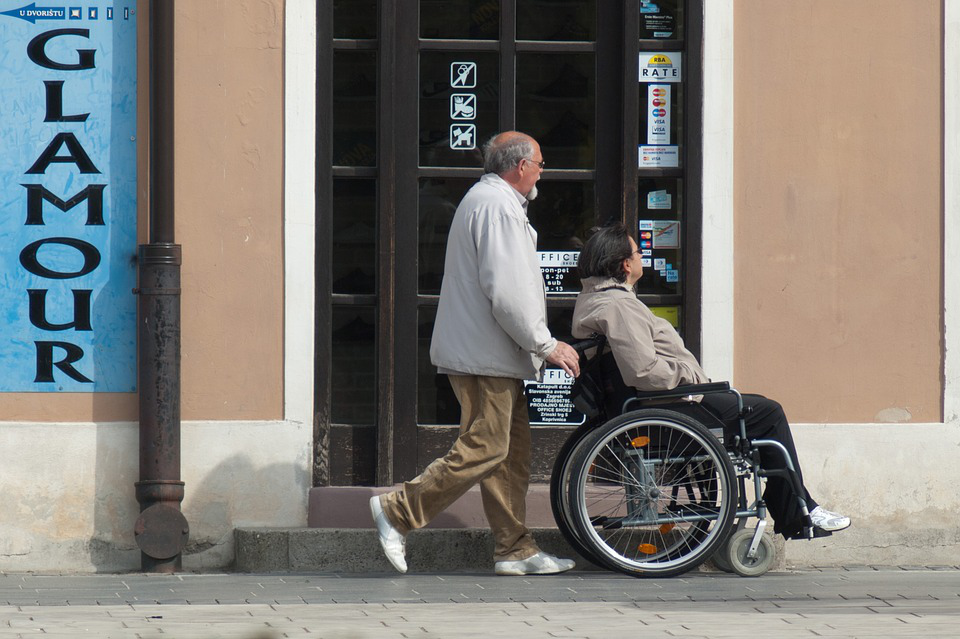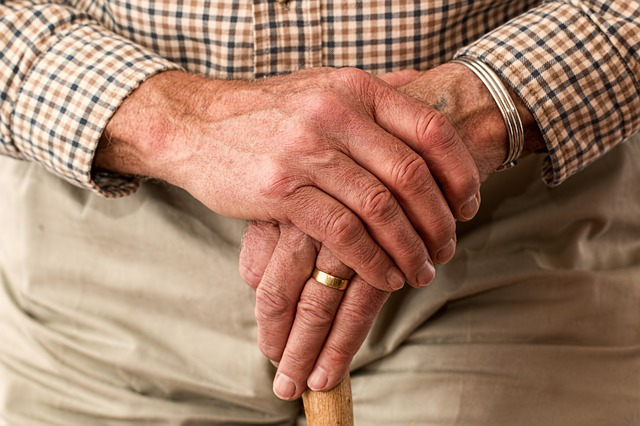Stress Management in Seniors
Experiencing a little stress every now and then is quite common. Everyone has those days when you feel anxious and frustrated when your life isn’t going according to plan. When we’re young, our bodies are well-equipped to handle these stressful situations. But as we age, our resilience and ability to cope with stress decreases.
According to a study published by the Harvard Medical School, our body copes with stress differently as we age. As the fitness of our heart and the capacity of our lung declines, our body finds it difficult to bounce back from stressful situations. Stress hormones can also trigger neurodegenerative diseases such as dementia by flushing out the good hormones from our brains.
The good news is that with proper care and stress-busting tips, you can prevent it from taking a toll on your body. Here are some top tips to get you started:
Meditation and Mindfulness:
Mindfulness means being aware of your surrounding and your inner turmoil. It allows you to focus on the present and let go of the past. It can be done through meditating or through some form of yoga.
Whether it’s breathing exercises, silent meditation, or simple stretches, practicing mindful meditation daily has shown significant positive effects among older adults. It has also shown the physical benefits of helping them feel relaxed and better equipped to handle stressful situations.
Engage More:
Whether it’s expanding your social circle, spending more time with family, or playing with a pet, engaging with others can help improve your move and alleviate the stress levels quickly. Having someone to talk to and understand what you’re going through can have significant positive results. It’s a great way to manage stress and to keep your mental health in check.
Write It Down:
Maintaining a daily journal is a wonderful way to cope up with the daily stress and responsibilities life throws at you. Not only does it help you understand what you’re feeling, but it also provides a different perspective. Writing what’s bothering you can make it clearer for you and help you deal with it effectively.

Be Involved:
Find a new hobby or participate in a social activity. This can help you fill in the idle time that you may otherwise spend fretting about things you can’t control. Try doing volunteer work or add some recreational fun into your daily routine. This will help increase your feelings of happiness by allowing you to be more productive and help you engage with others as well.
AvantGarde Senior Living and Memory Care provides the best comprehensive care through retirement facilities, senior housing, and assisted living apartments in Calabasas, CA. We offer a range of daily activities and recreational opportunities to help improve the quality of life among seniors in California.
For more details and information about our excellent amenities and comprehensive services, take a virtual tour of our senior living facilities or give us a call at (818) 881-0055.
5 You Might Not Have Known About Assisted Living
Senior living designers have worked tirelessly for over a period 30 years to revolutionize the concept of assisted living and assisted living communities to make them feel more like home; this is all an effort to allow residents to enjoy a better quality of life.
Unfortunately, the lack of awareness regarding assisted living has people confused over whether or not it’s a good idea to live in an assisted community.
Here’s what you need to know about assisted living communities to ease your mind.
1. They Offer Various Levels of Care
Assisted living communities offer many different levels of personal and medical care to suit the needs and interests of all their residents. For instance, some communities provide memory care for the elderly struggling with memory loss.
2. Every Community Is Unique
There’s no standard size or shape for assisted living communities. Each community has its own features, its amenities and varying levels of care it offers. For example, while one community might be traditionally designed, another one could be more modern in its entire set up. Make sure you visit the assisted living community in person to see if it suits your lifestyle before making your final decision.
3. Many Communities Are Pet-Friendly
Think you’ll have to let your furry friend go if you decide to live in an assisted living community? We’re happy to tell you that it isn’t true! Many communities understand the importance of companionship and so they offer senior people a chance to bring along their pets when they move in.

4. They Offer Many Opportunities To Socialize
Most people and their families have the impression that assisted living communities are boring and those living in them are lonely. But the truth is that assisted living communities offer a lot of opportunities to socialize and make friends. Residents participate in games and crafts, do regular exercise and go on trips together where they get the chance to know each other and spend quality time together.
5. People Can Make Their Own Schedules
Residents of an assisted living community aren’t bound by a strict schedule or timetable. In fact, they have the freedom and independence to decide what they want to do throughout the day. They also have caregivers to assist them with their schedules.
If you’re looking for an outstanding and comprehensive assisted living program in Calabasas, CA, you should get in touch with AvantGarde Senior Living and Memory Care.
We provide excellent retirement facilities and a spectrum of services tailored to the needs of all our residents.
Take a virtual tour of our community and connect with us today!
Senior Living Community Myths: Debunked
The United States Census Bureau stated in a 2017 report that, the number of seniors living in the US is approximately 47 million. By 2050, over a fifth of the country’s population is expected to be of people of over 65 years of age.
When such a rapid increase in the aging population is predicted, it’s imperative to start planning for the residence of the elderly. Currently, there are more than 3,327 senior living communities in the US that provide housing, medical care and personal care to the retired people. But the truth is that the misconceptions surrounding senior living communities have the elderly avoiding them like the plague.
The benefits of living in a senior community are many, which is why we’ve taken it upon ourselves to debunk the myths you might have about it.
Here’s what you shouldn’t believe about senior living communities.
Myth 1: People Living in Senior Communities are Dissatisfied
One of the biggest myths about senior living communities is that the residents are unhappy and dissatisfied. This couldn’t be more wrong. According to a survey conducted by the Assisted Living Federation of America (ALFA), 94% of the people are satisfied with the quality of life they get to enjoy living in senior communities.
Myth 2: Senior Housing Communities Feel like Institutions
If you imagine long white hallways, bleach odors and bright fluorescent lights when they think of senior living housing, then you should know that can’t be further from the truth. Senior living communities are extremely comfortable, homely and pleasant; they have beautiful décor, luxurious rooms and natural lighting; they’re nothing like a hospital.

Myth 3: Senior Living Communities Have Minimal Care
The residents’ safety, medical care and security are the top priorities at senior living communities. There are highly trained and experienced medical practitioners and caregivers present at the communities, 24/7 in case of any emergencies and to take care of the senior members’ everyday needs.
Myth 4: Senior Living Communities Aren’t Affordable
Senior living communities offer a wide range of amenities, housing, medical care and services at all-inclusive rates. The average cost of living in a senior community is comparatively lesser than living at home.
Looking for a luxurious senior living community in Calabasas, CA? Consider AvantGarde Senior Living and Memory Care.
We’re a certified Positive Approach to Care (PAC) community, providing excellent retirement facilities, top-notch services and amenities to suit the unique interests and needs of all our residents.
Take a virtual tour of our community and connect with us for more information.
Designing the Ideal Bedroom for Senior Persons
Elderly people who have limited mobility spend most of their time in the bedroom. And when designed smartly—and with care—the space can become a safe haven for them. By making just a few simple changes and taking some important safety factors into consideration, you can allow your elderly loved ones to live a comfortable, relaxed lifestyle. Let’s discuss design and safety features that enable comfortable living for senior people.
Safety Considerations—Most important aspect
Safety considerations should be your first priority when designing a bedroom for your elderly loved one. There are several things that you can do to ensure their safety. Firstly, make sure that the height of their bed is considerably high and comfortable.
Secondly, you must eliminate all tripping hazards by replacing smooth, slippery tiles with anti-skid flooring or wall-to-wall carpeting. Moreover, you should avoid cramping their room with excessive furniture and make sure that their walking path remains clear and unobstructed at all times.

Ensure that the room is well-lit
Keeping the room clean and spacious is not enough to ensure the safety of your elderly loved one. It’s crucial that there’s adequate lighting in the room as well. This is especially important if your loved one has weak eyesight.
A dark room can potentially lead to a slip or fall accident, which can severely affect their quality of life. Therefore, it’s essential to ensure proper lighting, especially around doorways and the bathroom area.
Always Remain in Touch
It’s important that they have access to a phone to contact you in case of any sort of emergency. Providing them with a cell phone is probably a good idea, but it’s much better if there’s a landline installed near the bed. Alternatively, you can provide them with a smart call button or an emergency bell. Just make sure that they can easily understand how to use it.
Whether you opt for cell phone, landline, or an emergency bell, just make sure that your loved one has easy access to the device. Having more than one mode of communication can provide you and them greater peace of mind.
Small Things Matter
It’s important to pay attention to detail when designing an ideal bedroom for your elderly loved ones. Make sure that they have all the basic amenities available and try to make everything more convenient for them.
For example, consider replacing doorknobs and lever style handles with open shutter or large drawer knobs; metal handles with more easy-to-use handles; and install curtain panels and drapes that are easy to open and close.

Personalize!
After you’ve dealt with safety considerations and have arranged all the necessary amenities for them to live a healthy lifestyle, it’s time to personalize their room. You can place a familiar rocking chair, hang family photos on the wall, and put their favorite showpieces on the side tables.
If you have the choice, you can give the room a fresh coat of paint with rich and vibrant colors to give a warm feel or perhaps toned down color—depending on their preference. Alternatively, you may also consider installing a wallpaper of their liking.
Looking for a Personalized Care Providing Community?
If you’re looking for a reliable senior living community in Beverly Hills, CA for your elderly loved one, contact AGS Living.
We’re an assisted living community in Beverly Hills, CA who offers customized care to elderly people and highly emphasizes on providing personalized solutions.
For more information, you may give us a call at (818) 881-0055 or visit our website.
Senior Nutrition: Tips for Maintaining a Healthy Diet
Maintaining a healthy diet and good nutrition intake is pivotal to leading a healthy lifestyle—especially for elderly people. A World Health Organization (WHO) report shows that improper diet is the main reason behind a majority of the diseases that older people suffer from.
Unfortunately, elderly people often experience micronutrients deficiency, primarily due to reduced appetite and a lack of variety in their diet. Here are some tips for maintaining a healthy diet for your loved ones.

Eat a variety of fruit and vegetables
Make sure to add a variety of nutritious and antioxidant-rich fruits and vegetables to their diet. With fruits, don’t rely solely on apples or bananas, instead, go for color-rich pickings like berries, cherries, and oranges. Moreover, choose leafy greens like broccoli, spinach, and kale as well as colorful ones such as beets and carrots.

The best way to consume veggies is by making a salad. You can add a tablespoon or two of olive oil as a dressing or perhaps add some goat cheese to give it a richer flavor profile.
Be watchful of your carb intake
Try to cut down, if not eliminate, processed and refined carbs such as white flour, white rice, and processed sugar, as they cause an increase in the blood sugar levels, followed by a rapid crash, which ultimately leads to overeating issues and obesity.

Swap the unhealthy carbs with healthier, complex sources of carbs—like brown rice, flour, and pasta—which are rich in nutrients, especially fiber.
Opt for foods that are high in Omega-3 Fatty Acids
Including fatty acids in a diet can be extremely beneficial for health—particularly for elderly people. This is due to their anti-inflammatory properties that provide protection from serious medical conditions such as arthritis, cancer, and heart diseases.

Some great sources of omega-3 fatty acids are fish—mainly Tuna, Salmon, and Mackerel. Other options include flaxseed, walnuts, and soybeans.
Add calcium-rich foods in your diet plan
Calcium plays an important role in keeping our bones strong. It’s so essential for our body that if we don’t get enough calcium, our body starts to reabsorb it from the bones, which can lead to severe medical conditions such as osteoporosis
Foods that are rich in calcium include leafy vegetables and dairy products such as cheese, milk, and yogurt. You should try to meet your daily calcium intake requirements via your diet; but if you’re unable to do so, then you must take calcium supplements, as directed by a medical professional, of course.
Consume foods rich in fiber
As we age, our digestive system tends to slow down; this affects our ability to digest food. To counter this, include foods that are rich in fiber in your diet as they promote proper digestion and facilitate the process of the food moving through the digestive tract.

Moreover, fiber also reduces the risk of heart diseases. As mentioned previously, fiber-rich food includes wholegrain bread, cereal, rice, and pasta. Also, fruits, vegetables, and nuts also help you meet your daily fiber intake requirements.
Stay hydrated
Water is one of the most—or perhaps the most—important part of our diets; yet, it’s ignored very often. As we age, our body’s ability to conserve water is reduced, so we don’t feel thirsty much. But the body still needs water.
This can lead to dehydration, which may result in confusion and drowsiness, among several other medical problems. Therefore, it’s crucial to make sure that you’re properly hydrated throughout the day.
It’s recommended that you consume at least 8 glasses of water every day. If you find it difficult to drink plenty of water at once; try to keep a water bottle with you and take a sip every now and then.
Looking for a Personalized Care Providing Community?
If you’re looking for a reliable senior living community in Beverly Hills, CA for your elderly loved one, contact AGS Living.
We’re an assisted living community in Beverly Hills, CA who offers customized care to elderly people and highly emphasizes on providing personalized solutions.
For more information, you may give us a call at (818) 881-0055 or visit our website.
Why Memory Care is Important for Senior Persons Diagnosed with Alzheimer’s
Taking care of your elderly loved ones who have Alzheimer’s disease or dementia can be an extremely exhausting, taxing job. It can take a great toll on both the emotional and physical health of the caregiver.
Alzheimer’s disease or dementia can take away a person’s ability to sustain a regular lifestyle—depending on the severity of their condition. For instance, they might be energetic in the middle of the night, wake up after every few minutes, forget their name, and even show hostile behavior.
Ultimately, as the condition worsens, you’ll have to seek external assistance. When looking for outside help, a memory care community is the best choice to ensure their safety and wellbeing. Let’s learn more about what it entails.
Why Memory Care is Important for Senior Persons Diagnosed with Alzheimer’s
Dementia can be categorized into three stages; mild, moderate, and severe. In mild dementia, your elderly loved one may experience difficulties in remembering names, processing new information, and suffer from anxiety, depression, and loss of appetite, among several other conditions. At this stage, you might be able to take care of them at home.

In moderate dementia, your loved one’s physical ability may get compromised and their judgment may get impaired. They might feel completely energized at night and may face behavioral changes such as aggressive behavior. This will require you to perform some home modifications, like installing safety locks and latches, etc.
In severe dementia, your loved one may suffer from limited or no mobility, extensive memory loss, and find it difficult to swallow food. They’ll require round-the-clock medical care from a professional caregiver who understands the ins and outs of Alzheimer’s disease or dementia.

The benefits of living in Memory Care for elderly Alzheimer’s patients
Elderly people who suffer from Alzheimer’s disease or dementia require an extremely high level of supervision and skilled care from a professional caregiver, making memory care an ideal choice. It allows them to receive 24-hour care from highly trained professionals.
Memory care units typically offer the same services as assisted living communities, and often exist as an additional wing within these communities. However, they provide more personalized care, as the staff to patient ratio is high, and take additional precautions to ensure the safety of the patients, as they might have a tendency to become aggressive and hostile.
Furthermore, there are several activities arranged to stimulate the memory of such patients, including arts and crafts, music, games—which can help to slow the progression of the diseases. It’s not possible for an individual or an assisted living communities to provide the same level of care and time to the patient as a memory care unit can.
Therefore, memory care communities play a critical part in ensuring the safety of your loved one who is suffering from Alzheimer’s disease or dementia.
Looking for a Personalized Care Providing Community?
If you’re looking for a reliable memory care or senior living community in Beverly Hills, CA for your elderly loved one, contact AGS Living.
We have a memory care unit in our assisted living community in Beverly Hills, CA which offers customized care to elderly people and emphasizes personalized solutions—especially to those with Alzheimer’s disease or dementia.
For more information, you may give us a call at (818) 881-0055 or visit our website.
Making the Move to a Senior Living Community: Tips and Guidelines
We’d all love to spend time with our elderly loved ones as long as we have them in our lives. Unfortunately, a lot of us don’t have this luxury; our circumstances can make it impossible for us to tend to their needs properly take care of them at home.
To make sure that they have the care they deserve, it’s important to find an assisted living community for them to ensure their safety and wellbeing. Here are some tips and guidelines to follow when moving your parents to a living community for the first time.
Don’t feel shy to ask for help
Moving your elderly loved ones to a living community requires a lot of effort and planning. You’ll need to find a living community that is suitable for your loved one and offers them personalized services so they can live a good lifestyle.
Moreover, you’ll need to pack and move all their stuff; which may be a difficult and time-consuming process. Don’t hesitate to ask your family and friends to help you out with the packing and moving process.
In addition to that, it can take a big toll on the emotional and mental health of both you and your elderly loved one. If either of you feels anxious, depressed, or overwhelmed, it’s important that you seek help from a counselor.
Visit before the final move
It’s important that you make a visit to the living community along with your elderly loved one before the final move. This will provide both of you with the opportunity to gain a better understanding of the community and get familiarized with the people, schedule, and staff.

Consequently, you’ll have peace of mind that your loved one is properly taken care of. Additionally, you must make sure to make frequent visits to the community until they’re completely adjusted to their new residence.
Get involved to help the transition process
The moving process is still not over after you’ve helped your loved one move. You need to make sure that they’re able to find activities and make friends in the community. Try to participate in family-inclusive activities and remind them of their past interests.
You can also engage in different activities to bond with your loved ones. For instance, take a language course together, schedule a game of chess every week, or perhaps plan workout sessions twice a week.
Looking for a Personalized Care Providing Community?
If you’re looking for a reliable senior living community in Beverly Hills, CA for your elderly loved one, contact AGS Living.
We’re an assisted living community in Beverly Hills, CA who offers customized care to elderly people and highly emphasizes on providing personalized solutions.
For more information, you may give us a call at (818) 881-0055 or visit our website.
Independent, Assisted or Memory Care: Which Lifestyle is Best for Your Loved Ones?
Before you decide which lifestyle will help your loved one live their life to the fullest, it’s extremely important that you understand what conveniences each one offers to make the right choice.
Let’s look at all three options in detail to help you ensure that your elder loved one is properly taken care of.
Independent Living
If you’re considering independent living for your elderly loved one, it’s important to ensure that they can live their lives comfortably and happily without needing any sort of assistance or help.
However, this can be subjective; for instance, they might be able to take care of themselves without any assistance, but they might be able to live a better life with extra help in their daily routine.
Having access to housekeeping, chef-prepared meals, and other amenities will enable them to pursue their passions with family and friends while having everything else taken care of.
Assisted Living
An assisted living community makes for a great housing solution for your elderly loved one if they can live their life independently, but also requires assistance in their day-to-day tasks.
Your loved ones will have a helping hand while performing daily tasks such as bathing, dressing, taking their medication, and several other activities.
There’s properly trained staff available that understand the requirements of the members of the community and know how to help them lead a comfortable, healthy lifestyle.
In conclusion, they offer just the right level of care that’s required for your elderly loved ones to triumph in this new phase of their life.
Memory Care
If your elderly loved one is suffering from Alzheimer’s disease or dementia, it may drastically reduce their aptitude and ability to lead a regular lifestyle
Depending on the severity of their condition, they might become aggressive or hostile, feel energetic at night, wake up every few minutes, or experience extensive memory loss.
In such instances, memory care community is the best option for them, as it’ll grant them access to round-the-clock medical care from a professional caregiver, which is necessary to ensure their safety and wellbeing.
In addition to that, your elderly loved one will get to indulge in activities, such as arts and crafts, music, and games, which can help to stimulate the memory and slow the progression of the disease they have.
The staff that works at memory care perfectly understands the challenges pertaining to Alzheimer’s disease and dementia; which enables them to provide your loved one with everything they might need.
Which Lifestyle is Best for Your Loved Ones?
When deciding which lifestyle is best for your loved ones; there are three basic parameters that must consider:
- Level of required assistance
- Level of daily activity
- Level of required medical attention
If your elderly loved one is physically active and doesn’t require any sort of assistance, only then can independent living be a suitable choice for them.
If they’re fairly active, but do require assistance with day to day tasks, they will find an assisted living community to be a much better option.
Finally, if they’re suffering from a medical condition that requires extensive care and attention—such as Alzheimer’s disease or dementia—a memory care community is the ultimate choice for them.
Looking for a Personalized Care Providing Community?
If you’re looking for a reliable memory care or senior living community in Beverly Hills, CA for your elderly loved one, contact AGS Living.
Our memory care and assisted living community offers customized care to elderly people and emphasizes personalized solutions.
For more information, you may give us a call at (818) 881-0055 or visit our website.
Combating Memory Loss through 3 Stimulating Activities
Memory loss is a difficult and overwhelming condition to go through, both for the person experiencing it and their loved ones who helplessly watch them struggle. However, there are a few activities that can improve your elderly relative’s memory, and evoke a nostalgic response.
Rummaging Through a Memory Box
You know how we add in notes, messages, and photographs in a jar, gifting someone with some of our favorite memories with them? A memory box works the same way. Comprising of a range of personal items, it’s a great way to remind your loved one of the things they used to love and the memories you shared with them.
A memory box can contain an endless range of objects. Family portraits, letters, stationery they loved, photographs of them at specific places, and several other things that hold some significance to their hobbies, career, or acquaintances can be added to it. Going over the contents of the box, your loved one may be reminded of a particular moment and the range of items can help trigger past memories.
Listening to Music
Studies have pointed out the therapeutic effects of listening to music, and how they can help patients with memory loss. There’s something powerful and magical about melodies. They tend to evoke nostalgia and remind us of certain people or places while we listen to the tunes. Unsurprisingly, then, music also has a similar effect on people struggling with memory loss.

When older individuals with dementia hear music from their younger days, they may be reminded of that time, even if they aren’t able to put together the memories all at once. You may also find that they respond better to a song they used to love previously, than to music they haven’t heard before. Having a playlist of songs from their early days and that which they enjoyed can be a powerful way of evoking memories, especially in the early stages of dementia.
Playing Card Games
Card games are a great way for the brain to be stimulated and alert its memory and cognition senses. Take for instance the ever popular game Memory or Go Fish. Both serve as an excellent way to test the player’s cognitive abilities, and promote deeper mind concentration.
Playing card games with your senior loved one can help them improve their focus and the ability to concentrate. Since they require the players to remember where a specific card is placed and who has which cards, they help the mind stay active and alert as the players attempt to make a calculated move.
This can be especially helpful for individuals facing memory loss as it triggers a memory response, even if it’s a short-term one. For a more personalized effect, you can introduce customized cards with pictures of familiar faces and places on them to stimulate their memories.
AvantGarde Senior Living & Memory Care is a senior housing community in Calabasas, which provides assisted living and memory care services.
Call us at (818) 881-0055 to learn more about our senior care unit!
4 Tips for Dementia Caregivers
According to statistics, 9.9 million new cases of dementia are reported annually across the globe. This is a degenerative condition of the brain which causes memory loss and behavioral changes. While dementia is a progressive disease, there’re ways to manage the symptoms and make life easier for individuals with this condition.
Taking care of an elderly loved one with dementia? Here’s what you need to know.
Speak in Short & Specific Sentences
Avoid asking patients with dementia vague or open-ended questions. Instead, phrase your words as simply and clearly as you can to make it easier for them to understand.
For instance, instead of asking what they’d like to have for breakfast, you can make it simpler by asking whether they want cornflakes today. This will help them formulate a “yes” or “no” response, making it easier for them to reply and relieving them from the anxiety-inducing and confusing task of making a decision.
Use the Power of Touch
You know how they say actions speak louder than words? That strongly applies in dementia caregiving as well. Senior loved ones facing loss of cognition skills and memory may not be able to articulate their thoughts and process your words, but there’s another way you can communicate with them.
Simple gestures such as stroking their forehead, brushing their hair, or holding their hand act as reassuring tokens of love. It makes them feel safer and also helps them focus on a particular thought or memory. In fact, studies have pointed out the effects of fist clenching in stimulating the brain to remember better and stabilizing body motion. Holding their hand and helping them make a fist can evoke a better response from them.
Remember Their Behaviour Is Uncontrollable
A lot of caregivers overlook the fact that the irritated and often hurtful behavior being exhibited by patients with dementia is not something they can control. Dementia affects the brain, which in turn affects their ability to speak, think, and behave. As a result, it can be difficult to interact with them as they may say hurtful things and be irritable themselves.

It’s important to remember that it is indeed the disease talking. Don’t take their remarks personally! They can’t control their behavior.
Ask For Help
Caregiving can be emotionally draining and extremely exhausting if only one person is responsible for all the work. Coping with everything on your own can be an overwhelming task and can even affect your ability to take care of your loved one properly if you’re overworked and unrested.
Don’t be hesitant about asking for help! Even if you’re the only family member who can assist, you don’t have to do everything alone. For both your own and your loved one’s health’s sake, reach out to organizations that specialize in dementia care and take assistance from professional caregivers.
AvantGarde Senior Living & Memory Care is a senior living and memory care unit in Calabasas that provides assisted living and skilled nursing services.
Call us at (818) 881-0055 to get in touch with our team!










